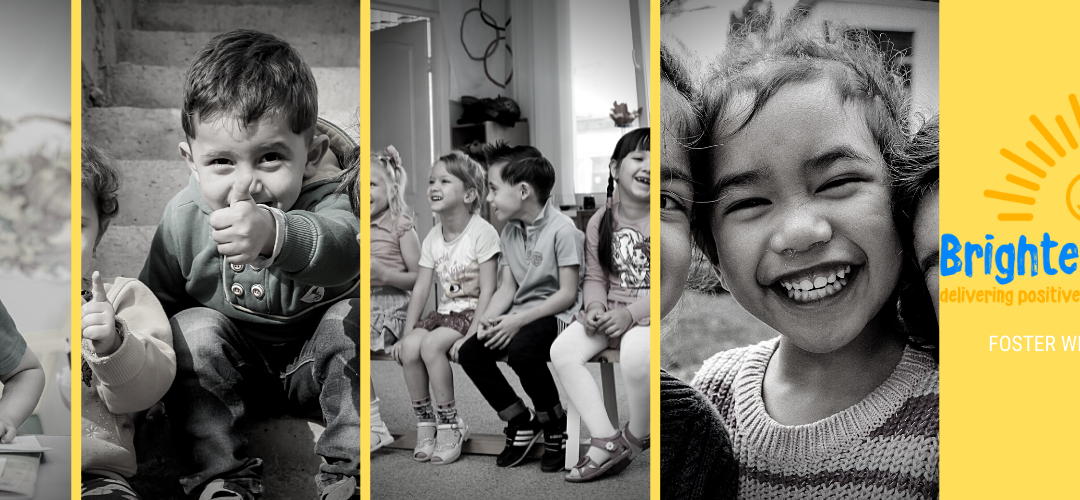Fostering is a rewarding yet challenging journey that demands a robust support system. At Brighter Fostering, we understand that foster carers need more than just training and resources—they need a reliable support network. This blog explores the crucial role support networks play in fostering and how they help carers navigate this meaningful journey.
Why Support Networks Matter
Foster carers often face unique challenges, from managing complex behaviours to navigating the emotional ups and downs that come with caring for children who have experienced trauma. A strong support network can provide:
- Emotional Support: Fostering can be emotionally demanding. Having a group of people to share experiences, vent frustrations, and celebrate successes can make a world of difference.
- Practical Advice: Seasoned foster carers and support groups can offer invaluable practical advice, from handling specific behaviours to dealing with administrative processes.
- Social Connection: Fostering can sometimes feel isolating. Being part of a community of carers provides a sense of belonging and reduces feelings of isolation.
- Professional Guidance: Access to professionals such as social workers, therapists, and counsellors through a support network ensures that carers can seek expert advice when needed.
- Step in where you are away or needed: Support networks can step in during times of absence or when additional assistance is required, ensuring continuity of care for the child. This collaborative approach allows foster carers to take breaks or manage unforeseen circumstances while ensuring the child’s needs are consistently met.
Building a Support Network
At Brighter Fostering, we encourage all our foster carers to build and maintain a robust support network. Here are some ways to do this:
1. Join Support Groups
Local and online support groups are excellent resources. These groups provide a safe space to discuss challenges, share solutions, and gain insights from those who have been in similar situations. Brighter Fostering regularly hosts support group meetings and online forums for our carers.
2. Stay Connected with Your Agency
Maintaining regular contact with your fostering agency is crucial. At Brighter Fostering, our team is always available to provide support, answer questions, and offer guidance. We also organise events and workshops to help carers stay informed and connected.
3. Family and Friends
Don’t hesitate to lean on your personal network. Family and friends can provide emotional support, help with daily tasks, and even offer respite care when needed. Talk to them about your role and how they can assist you.
4. Utilise Professional Services
Professional support is a critical component of your network. Access to therapists, counsellors, and medical professionals can provide the necessary care for both you and the children in your care. Brighter Fostering can connect you with the right professionals to support your needs.
- Engage with Online Communities
Online communities and forums dedicated to fostering can be a valuable resource. These platforms allow you to connect with a broader community of carers, access diverse perspectives, and find support at any time.
- Reach out to friends and family
Foster caring is easier with a supportive network. Regularly connect with loved ones to share experiences, seek advice, and receive emotional support. They can assist with daily tasks, offer respite care, and provide stability for both you and the children. By involving them in your fostering journey, you build a stronger support system that enhances everyone’s well-being. (Please ensure valid checks have been taken place before leaving your foster child with your support network)
The Role of Brighter Fostering
At Brighter Fostering, we are committed to providing holistic support to our foster carers. Our services include:
- Regular Training: Ongoing training sessions to equip you with the latest knowledge and skills.
- Dedicated Support Officers: Access to dedicated support officers like Lailaa, who are always ready to assist you.
- Respite Care: Offering respite care to give you a much-needed break.
- Resource Library: A wealth of resources including books, articles, and online materials.
- Peer Mentorship: Pairing you with experienced foster carers for one-on-one mentorship.
Conclusion
The fostering journey is filled with both challenges and rewards. A strong support network is essential in helping foster carers navigate this journey successfully. At Brighter Fostering, we are dedicated to building and nurturing these networks to ensure that every foster carer has the support they need to make a positive impact on the lives of children.



Recent Comments